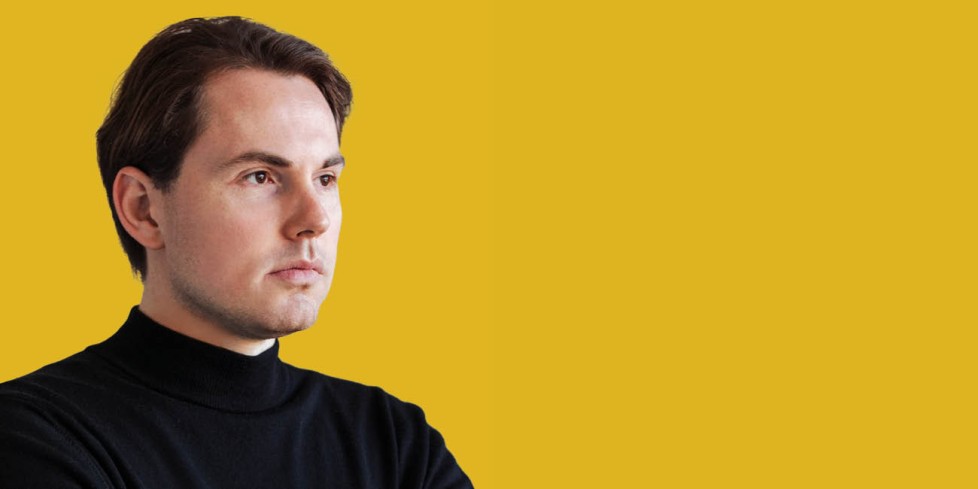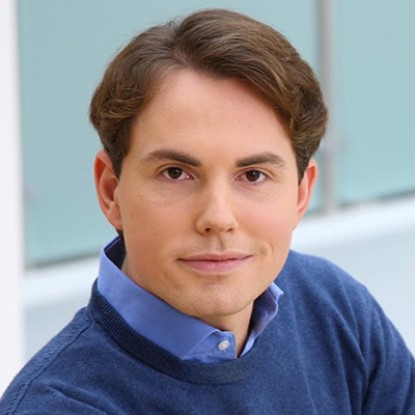New at the department: Prof. Dr. Dominik L. Michels
Intelligent Algorithms in Modeling and Simulation (IAMS) Group
2023/01/26
Since January 1, Dominik L. Michels is professor for Intelligent Algorithms in Modeling and Simulation at the Department of Computer Science at TU Darmstadt. His research aims for the development of principled computational methods targeting simulation tasks in the fields of Visual and Scientific Computing. This is based on solid theoretical foundations resulting from fundamental research comprising Algorithmics, Artificial Intelligence, Computer Algebra, Machine Learning, Mathematical Modeling, and Numerical Analysis.

In many cases, the transfer of difficult problems into the digital world enables their efficient consideration and solution.
Dominik L. Michels
Since summer 2016, he is heading the Computational Sciences Group within KAUST's Visual Computer Center. Previously, he joined Stanford University in fall 2014 heading the High Fidelity Algorithmics Group within the Max Planck Center for Visual Computing and Communication. Prior to this, he did postdoctoral studies in Computing and Mathematical Sciences at Caltech in spring and summer 2014.
He studied Computer Science and Physics at University of Bonn and B-IT, from where he received a B.Sc. in Computer Science and Physics in 2011, a M.Sc. in Computer Science in 2013, and a Ph.D. in Mathematics and Natural Sciences on Stiff Cauchy Problems in Scientific Computing in early 2014.
During his academic studies he was visiting several international institutions, among others Harvard University, the Massachusetts Institute of Technology, NASA's Jet Propulsion Laboratory, and the Joint Institute for Nuclear Research in Dubna, Moscow.
In addition, Professor Michels is a research partner in the areas of high technology and consumer products. He collaborates with leading multinational companies and research institutions from various sectors and is a shareholder of several spin-offs. In his Group Intelligent Algorithms in Modeling and Simulation (IAMS) at TU Darmstadt he will work closely with the Hessian Center for Artificial Intelligence (hessian.AI).
Get to know Prof. Dominik L. Michels in our interview:
What is the biggest milestone of your career so far?
I completed my master's degree a little less than ten years ago. When I look back at the development since then in my research field, it becomes clear to me once again that we have made considerable progress in the simulation of complex systems over the last ten years.
Simulations of complicated scenarios can be simulated with accuracies and at speeds that would not have been expected in 2013. This is not so much a result of increasing computing power but is much more due to the fact that we have made great progress in developing highly accurate and at the same time efficient algorithms.
We passed several milestones along the way, and what's really satisfying is this retrospective.
What fascinates you about your topics? Why should students be interested in your topics?
Computational simulation has become a central cultural technique. Alongside classical theory and experiment, it now provides an equal digital apparatus of methods for analysis and prediction. The possibilities in science and practice are correspondingly large.
In many cases, the transfer of difficult problems into the digital world enables their efficient consideration and solution.
Are you planning specific projects and courses at the department?
We are planning to offer a lecture addressing the intersection of simulations of complex systems and modern artificial intelligence. Another (very practice-oriented) lecture will deal with the development of digital business models.
At TU Darmstadt, interdisciplinarity is emphasized. Where do you see interfaces between your work and other disciplines?
Methodological overlaps can of course be found primarily in computer science and mathematics. In general, however, there are always links to application disciplines where it is a matter of gaining insights into complex systems.
Which department at the TU would you like to spend a day in?
In the history of architecture and art. In my research I have various points of contact with geometric problems.
Various art forms and parts of architecture can be interpreted as applied geometry. Among other things, it is about forms and spatial structures. Putting these into a social and historical context seems very appealing to me.
You are also co-founder of the Berlin-based company for personalized skin care 'AVE&YOU' and advise companies on product innovations. Has it always been your goal to closely dovetail theory and practice?
I consider this interlocking to be very desirable, but I would like to note in this context that I can also enjoy theoretical results that have their own special appeal.
If I were a student today, I would …
… try to organize my studies with the (in comparison to my time as a student very extensive) digital teaching offer in such a way that I hear exactly the courses that I really want to take.
The best balance to a stressful day at work is …
… sometimes sports, sometimes a glass of wine.

